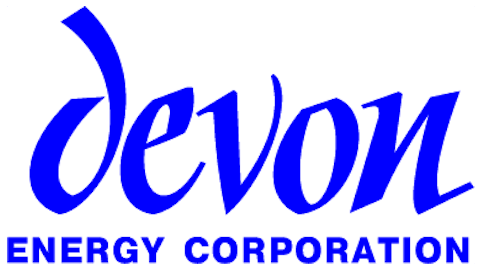SandRidge Energy Inc. (NYSE:SD) and Chesapeake Energy Corporation (NYSE:CHK) are two companies that have been in the thick of controversy over corporate governance, and the similarities between the controversies may be explained by the fact that Tom Ward, the CEO of SandRidge co-founded Chesapeake before he founded SandRidge. Chesapeake’s controversial CEO Aubrey McClendon announced his departure recently, and the spotlight is now on Tom Ward. This article examines the latest situation in the ongoing saga where activist shareholders led by TPG-Axon are seeking to replace him and some of the directors on the board.

The latest controversy in corporate governance is that SandRidge is giving Tom Ward considerable latitude to profit from personal oil-and-gas deals that could present potential conflicts of interest with the company. The company has lifted most restrictions on Ward’s rights to sell mineral rights or drill wells with a little noticed modification to his agreement of employment in 2011. Prior to this, Ward was allowed to receive royalties from SandRidge or jointly own wells with it only on the land that he had owned before 2006. The 2011 mortification permits him to strike deals with SandRidge and to do business with SandRidge on any land that he owns or acquires.
According to Reuters, land records examined by them reveal that an entity linked to Ward 192 Investments LLC acquired mineral rights on thousands of acres in the Mississippi Lime shale formation in Kansas late in 2011. These rights were acquired a few months before SandRidge leased property in neighboring or adjacent plots. Such deals could pose a potential conflict of interest. Giving top executive latitude to generate personal income by partnering or competing with the public company he runs is, to say the least, unusual because it could diminish returns for shareholders and create conflicts of interest according to industry attorneys and specialists in corporate governance. Entities connected to Ward may lease drilling rights and sell them to SandRidge at higher prices. Alternately, they may acquire mineral rights before SandRidge, and if SandRidge subsequently acquires and develops the land, the Ward acreage is suddenly more valuable. This practice is called front running, and Ward’s profits are earned at the expense of shareholders.
Institutional Shareholder Services Recommendations
TPG-Axon, beneficial owner of 6.7% of the outstanding shares, has announced that Institutional Shareholder Services (“ISS”), a leading independent proxy voting and corporate governance advisory firm, has recommended SandRidge stockholders vote in support of TPG-Axon’s proposals that SandRidge’s bylaws be amended to destagger the Board, that five incumbent directors be removed, and that independent director nominees be elected to the Board. In its recommendation, ISS made the following points:
“The apparent failures of stewardship on this board are legion.”
“The company’s abrupt, piecemeal approach to corporate strategy and concomitant lack of capital discipline have increasingly limited the company’s financial flexibility, and engendered a deep distrust in the market.”
“From a stutter-stepping business strategy and weak capital discipline which reduced financial flexibility so far that the sale of the company’s most valuable non-core asset cannot close its anticipated funding gap-to a compensation program which failed to tie pay to performance, making the CEO one of the highest paid in his industry even as shareholder value declined by nearly three-quarters over his tenure-to approving numerous related-party transactions which, under public scrutiny, begin to look more like front-running the company’s own lease acquisitions than adding value unavailable through a less conflicted means-there is little reason to believe the outside directors who are specially charged with looking out for the interests of unaffiliated shareholders are best equipped to effect the necessary change at SandRidge.”
“Given the fact pattern underlying the dissidents’ extensive case for change, and the evidence of appropriately extensive advance planning to mitigate risks of unintended consequences, shareholder support for a majority change of the SandRidge board is warranted.”
“It is true, contrary to the company’s assertions, there is compelling senior oil & gas sector management experience among the dissident nominees.”
Tom Ward and the Current SandRidge Board
In a Forbes article entitled ” Tom Ward Of SandRidge Energy: Another CEO That’s Got To Go,” Richard Finger is scathing in his criticism of the current board of directors. He says that “Ward is obscenely overpaid” and that “Mr. Ward presides over a sycophantic board that obsequiously bows to Caesar’s commands.” He goes on to add that Ward compensates the current directors at around $375,000 yearly, which is considerably more than Exxon Mobil Corporation (NYSE:XOM), a company more than 100 times the size of SandRidge, pays its directors. He adds that Ward has benefited from related party transactions that TPG-Axon has identified in detail dozens of related party transactions.
Since the 2007 IPO, the price of SD stock has declined around 80%, but Mr. Ward has received total remuneration from the company of over $150 million over the past five years. Ward also has unlimited personal use of the four corporate jets belonging to the company, which he uses for personal weekend trips to places like Las Vegas and the Bahamas. The planes include a Falcon 900EX, which is one of the most expensive business jets available. Ward’s contract also provides that he will be paid $97 million in the event of a “change of control” at the helm of the company.
Peer Comparisons for Executive Compensation
With a total compensation of $25.2 million, CEO Tom Ward was one of the most highly paid executives in the industry in 2011, even though it is in the bottom half of publicly traded exploration and production companies ranked by revenues. Regulatory agencies require public companies to set benchmarks for their executive compensation based on comparisons with companies of roughly the same size. SandRidge cites two lists, one of mid-size exploration and production companies and the other of large energy firms.
The mid-size companies include the likes of Newfield Exploration Co. (NYSE:NFX), Denbury Resources Inc. (NYSE:DNR) and Plains Exploration & Production Company (NYSE:PXP). Those companies had 2011 median revenues of $1.95 billion, compared to SandRidge’s 2011 revenue of roughly $1.4 billion and a median executive compensation of $6.1 million. Ward’s compensation of over $25 million was more than 400% of this median.
The ‘large companies’ list contained six large companies, including the likes of Apache Corporation (NYSE:APA), Chesapeake and EOG Resources, Inc. (NYSE:EOG). These six companies had median revenues of $11 billion (nearly eight times that of SandRidge), and the median CEO pay was $15.2 million. Between 2007 and 2011, Ward earned $7 million more than the two executives who ran Chevron Corporation (NYSE:CVX) despite the fact that Chevron has more than 60 times the market capitalization. Chevron chairman and CEO John Watson received roughly $25 million in total compensation in 2011. This was a 52% increase from 2010, according to Chevron’s securities filing. Watson received a base salary totaling around $1.6 million and cash bonuses of $4 million. He also received $5.1 million in Chevron stock, a 35% increase from 2010.
Conclusion
Normally, I would recommend selling a company with this magnitude of corporate governance issues. However, after taking into account the underlying net asset value of SandRidge stock, I am rating the stock as a hold.
The article Corporate Governance Issues a Heavy Burden for SandRidge originally appeared on Fool.com and is written by Jordo Bivona.
Copyright © 1995 – 2013 The Motley Fool, LLC. All rights reserved. The Motley Fool has a disclosure policy.





